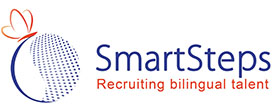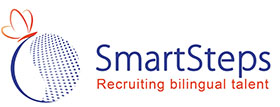Covid-19 has thrown so much of what we take for granted up in the air including the job market! If you seek work, there is so much you can do to set yourself apart and clinch a job!
- Speaking to many young people I am amazed that so few have ever heard of EURES! It’s the European Employment Service designed to facilitate free movement of people, the equivalent to the French Pôle Emploi, and it’s EU wide. As of today 3/6/21 they have more than 3 million vacancies and 957 EURES Advisers ready to assist you in your search for work. You can search adverts all over EU and you can post your own CV so recruiters can find you! There are tips on how to get jobs abroad. They regularly host European job days. They offer traineeships and apprenticeships abroad EURES.
- If your future aim is to work abroad, before leaving try to gain work experience in international companies. Recruiters abroad can relate to your ‘international’ experience. A big name company has as much value in your home country as it does abroad no matter how far afield you go.
- If you work in a small company, you often have more diverse tasks to do. Large companies often have specialist departments so you generally do more specific tasks, the saying “you are a small cog in a big wheel applies”. If you are looking for diverse experience go for a smaller company, if you are looking for very specific experience aim for larger companies.
- Do you know your true level of English or other foreign languages? If you don’t, consider certification. The TOEIC seems to be quite popular. It’s a diploma you can add to your CV and goes beyond self-assessment of linguistic competence.
- Try to do as many personality tests as possible. Most are free and online. They will help you to explain yourself at interview and answer standard questions like “what are your strong/weak points”. We all know ourselves, but it’s another matter to explain our inner selves to third parties.
- Whilst working, take notes everyday of what you did exactly (a diary of your work experience). Your diary notes will help you write your CV and better explain your experience at future interviews. Don’t forget to remain positive about your work experience even if some or all of the work is tedious. You may need to request a professional reference further down the line for a potential employer.
- Every time you have work experience, request a written reference before leaving. Professional references reassure future employers.
- The Covid situation means this isn’t necessarily the best period for Working holiday visas . However, they are offered to young people aged between 18-30 years, sometimes 35 years according to the country. You can gain international and travel experience in one go! It could be a great selling point in your search for work upon your return to your home country.
- Ensure your CV and Professional online profiles mirror each other. There is nothing worse than receiving a CV, checking the LinkedIn profile and discovering discrepancies.
- Many employers check Facebook profiles these days. You can make your page Private and should do so. It’s in settings and privacy (parametres et confidentialité). Block people you don’t want looking at your profile. Private and professional life do not mix well. Clean up your social media and ensure professional online media represents you.
- If you are not getting interviews, perhaps you need to review your CV. If you are getting interviews but no job offers, think about reviewing your interviewing skills. Read up, seek help!
- If you are having orientation problems and don’t really know what you want to do, it’s often easier to think of what you don’t want to do. Start from the other end and eliminate! Discover yourself through personality tests, ask others how they see you, where they see you. If you have end of year assessments, what were you good at, where do you need to improve? No matter what it is, what do you like doing? What are your interests? We are in a period of change, it may seem scary, but this is also a period of opportunities due to technological advancements. Try to think really hard on the subject, there are plenty of unusual jobs. Are you a leader or a back-office person? Do you want outside work or office work? Try not to cave into the pressure of status and good salaries, we all want these things but truly you will be good at what you enjoy and normally you will be working for some years! Besides to get jobs you have to explain your motivation, it’s one of the only three real interview questions.
- If you are receiving rebuttals, don’t keep hitting brick walls, think about bringing forward Plan B: move abroad for a while, pass your driving test, get a First Aid certificate, improve your tech skills, get written references, … You can greatly increase the sales power of your CV if you can explain what you achieved during your job search, “show” you weren’t waiting for something to happen. There are a growing number of professional training certificates online.
- Privilege quality applications as opposed to quantity. There is nothing worse than receiving a CV and ringing for more information only to be asked by the candidate for which job they applied! Quality applications should be your leitmotiv!
- Prepare yourself for finding work little by little and well in advance: CV, scanning relevant documents, tests, diplomas, interview skills, … Don’t wait until the last minute. You would be ill advised to do this for an exam and job hunting is the same.
- Once you have your diploma, apply for jobs straightaway. Don’t wait, finding work may take time and even if you are lucky enough to find work immediately, most companies will let you have a couple of weeks off in August!
- Try reading our other documents relative to finding work:
la-certification-de-competences-en-langue-anglaise/


